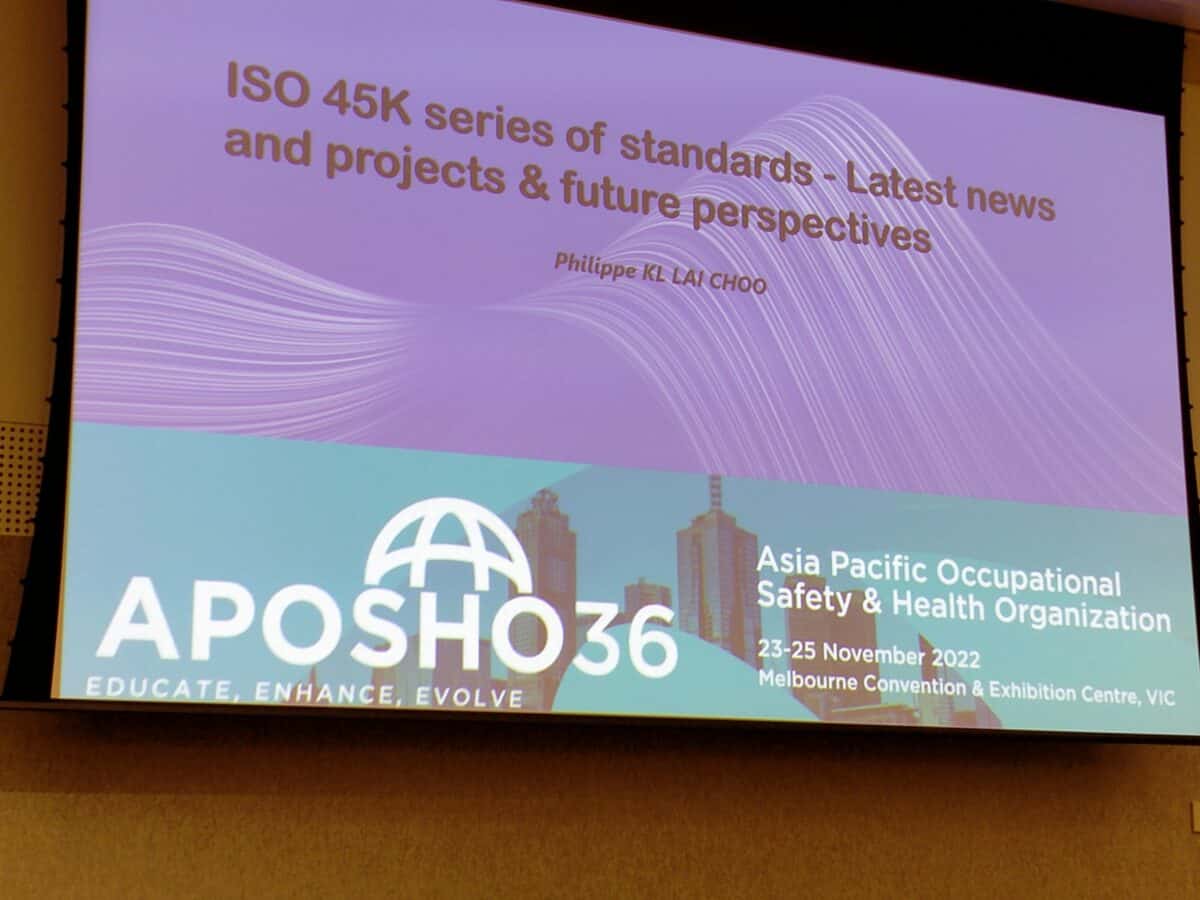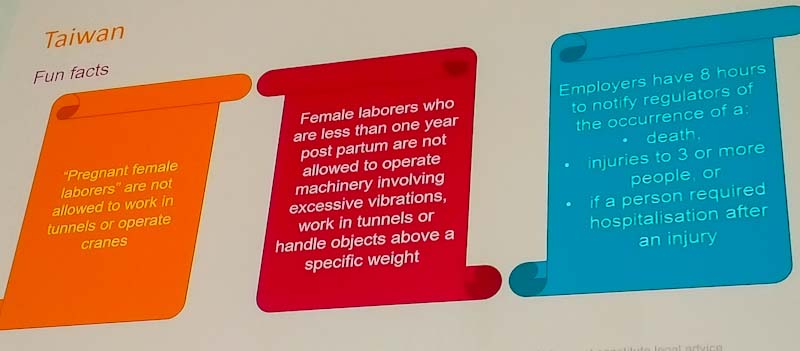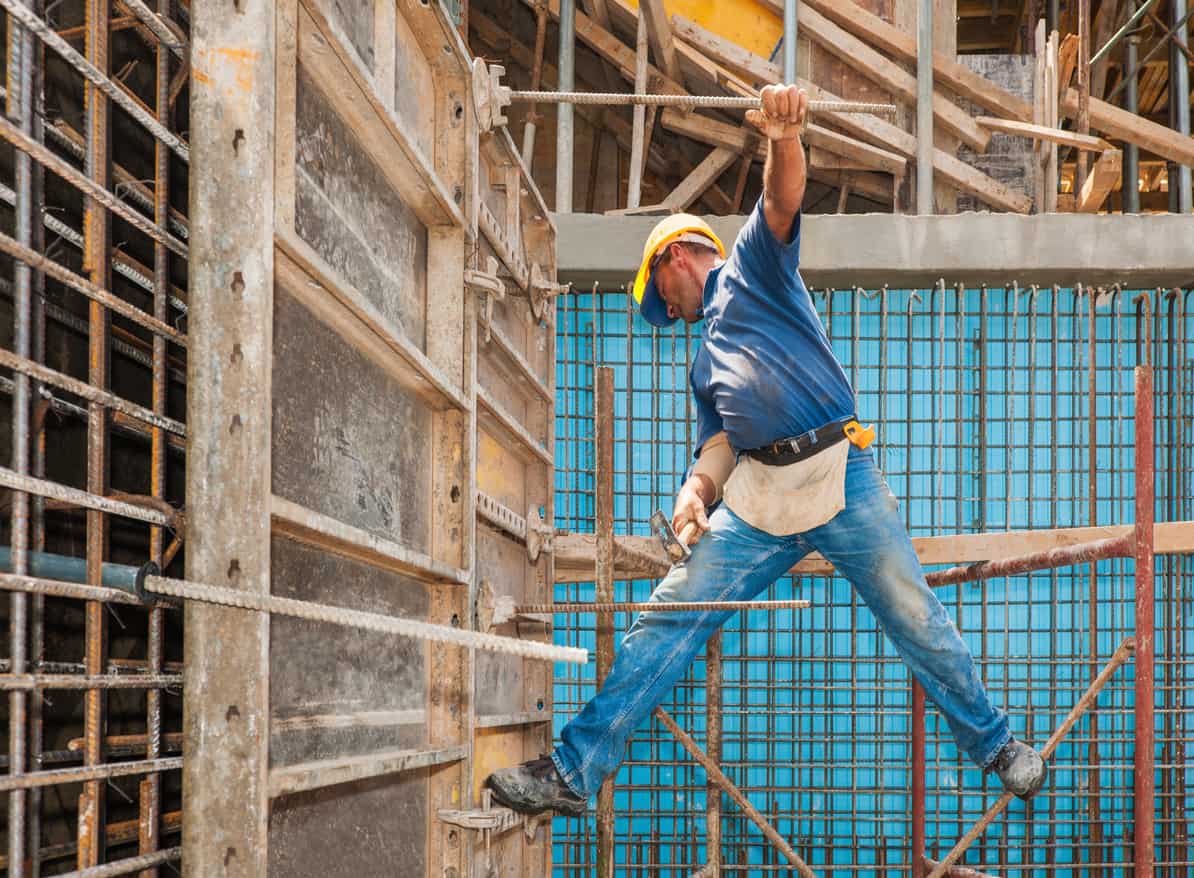What was missing most from the recent conference of the Asia Pacific Occupational Safety and Health Organisation was a strong Asia-Pacific voice. Certainly, there were presentations by Asian OHS professionals and some westerners working in Asia, but the keynote speakers were almost from Anglo-European cultures. This made it hard to understand if the conference was designed for Asian safety and health professionals to learn from us or for Australians to learn from them. Perhaps it was just for all of us to learn as a profession.
Some of the keynote speakers offered universal suggestions for improving the management of workplace health and safety, but perhaps these were so universal as to be generic or safe. For instance, one of the greatest challenges for the Asian region, in particular, is ensuring the safety of migrant workers. There was one mention of the deaths of the World Cup construction workers, and that was in passing.
Below is a summary of the conference and some of the occupational health and safety issues (OHS) raised.







